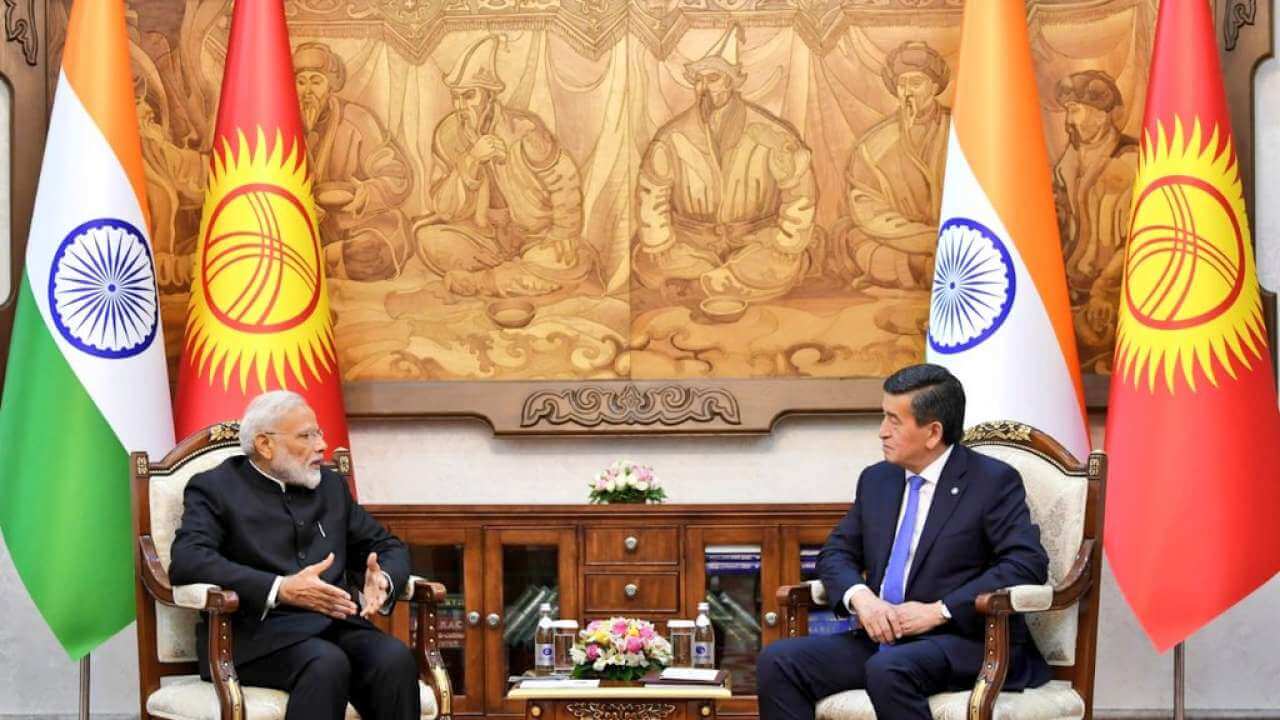Indian National Security Adviser (NSA) Ajit Doval met his Kyrgyz counterpart Lieutenant General Marat Imankulov on Tuesday. The duo discussed the ongoing crisis in Afghanistan, which borders both India and Kyrgyzstan.
The meeting took place during Imankulov’s visit to India for the first NSA-level strategic dialogue between the two countries. During the meeting, they agreed to bolster cooperation to counter the threats posed by terrorism, radicalisation, and drug trafficking.
Imankulov agreed with the Indian side’s view that an inclusive government is necessary for peace and stability in Afghanistan. To this end, the duo elaborated that the government would need to have sufficient representation of women and minority communities like the Tajik, Uzbek, and Hazara.
The meeting comes as India prepares to host an NSA-level meeting on Afghanistan, which will see the participation of Iran, Russia, Tajikistan, Uzbekistan, Pakistan, and China.
The meeting also aligns with India’s increasing interest in furthering ties with its Central Asian partners. Earlier this month, India announced a $200 million line of credit for Kyrgyzstan during Indian External Affairs Minister S. Jaishankar’s two-day visit to the Central Asian country. During his trip, Jaishankar and his Kyrgyz counterpart Ruslan Kazakbaev also spoke of the developments in Afghanistan. In this regard, they evaluated their “defence exchanges” and spoke of the need to enhance “personnel training.” Following his Kyrgyzstan trip, Jaishankar visited Kazakhstan and Armenia to boost connectivity and economic ties across Central Asia.
Last year, Jaishankar participated in the 2nd India-Central Asia Dialogue with foreign ministers of Tajikistan, Kazakhstan, Uzbekistan, and Turkmenistan, and the First Deputy Foreign Minister of Kyrgyzstan.
Similarly, in September 2020, on the sidelines of the Shanghai Cooperation Organization (SCO) summit in Moscow, Indian Defence Minister Rajnath Singh met his Uzbek, Kazakh, and Tajik counterparts to discuss how bilateral defence cooperation between New Delhi and the Central Asian countries can be strengthened. Later that year, Indian Prime Minister Narendra Modi and Uzbek President Shavkat Mirziyoyev convened a meeting and signed nine agreements to enhance their partnership.
These meetings all form a part of India’s “Neighbourhood First Policy.” In furtherance of this policy, India has also been seeking to enhance cooperation with its Eastern neighbours such as Vietnam and its Arab allies like the United Arab Emirates. Central Asia forms a crucial part of this strategy, which is largely centred around strengthening and expanding India’s diplomatic and strategic presence and also countering China’s growing influence in the region at large.
India, Kyrgyzstan Agree to Common Approach in Afghanistan
During a meeting between their national security advisers, India and Kyrgyzstan agreed to cooperate to counter the growing threat posed by the instability in Afghanistan.
October 27, 2021

Indian Prime Minister Narendra Modi with Kyrgyz President Sooronbay Jeenbekov SOURCE: DNA INDIA
